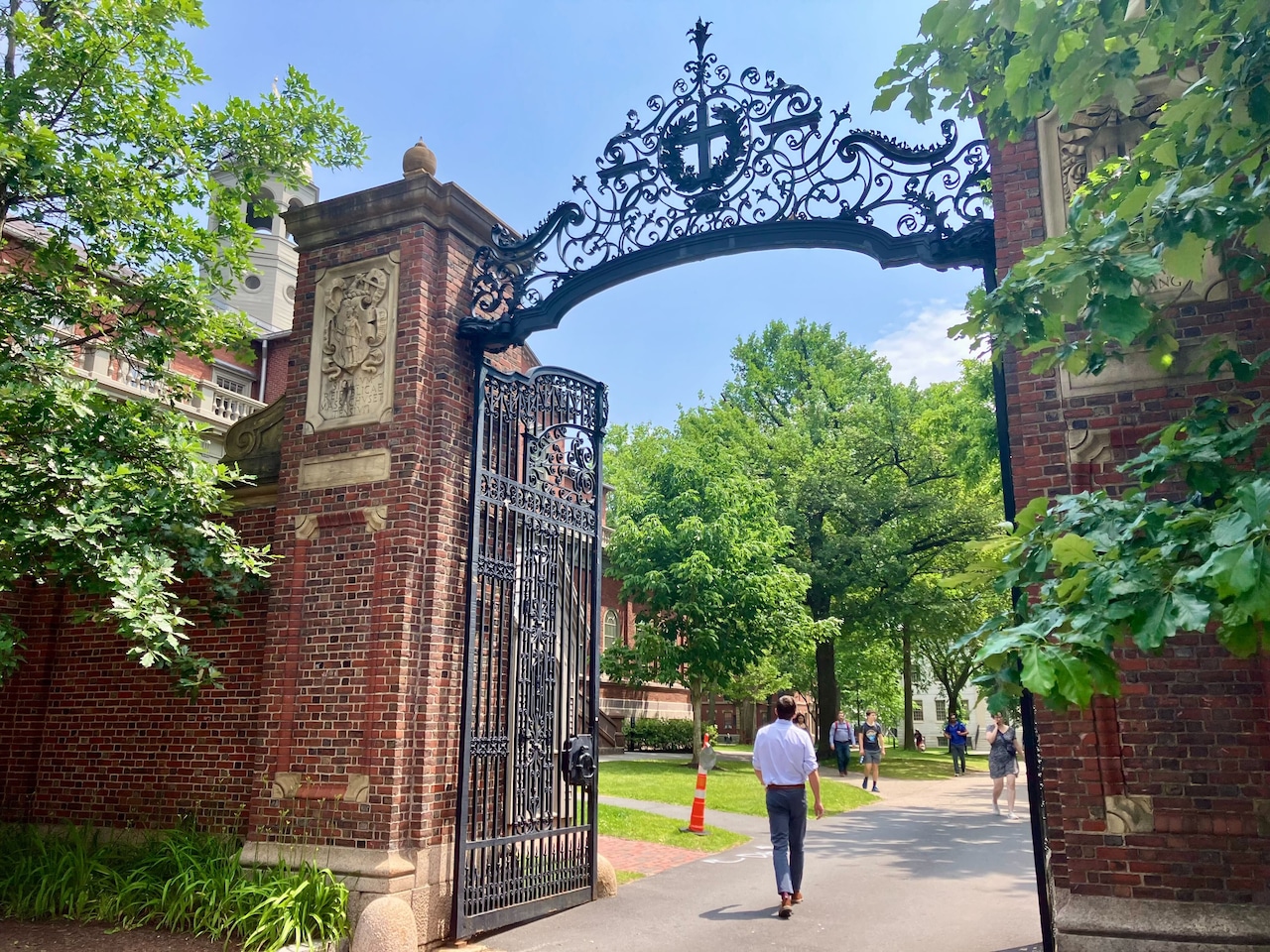First came a social media post on Friday from President Donald Trump, boasting of a “mindbogglingly HISTORIC” deal with Harvard University.
Later that day, the New York Times released an article citing numerous unnamed sources that talks had been progressing between Harvard and the Trump administration, and that some kind of a deal may indeed be coming.
Discussions resumed this week at a meeting in the White House, according to the Times. Harvard showed federal officials a PowerPoint presentation on how the university has addressed antisemitism, admissions and viewpoint diversity among faculty. The White House then sent Harvard a letter naming conditions the university could take that would resolve the conflict.
Harvard’s press office did not immediately respond to a request for comment on Saturday.
Two sources told the Times that a deal was unlikely to take shape within the next week.
The Times also reported that Harvard felt pressured to make a deal with the administration.
The Trump administration has taken a multi-pronged approach to bring Harvard to heel, cutting off or freezing billions in federal funding, attempting to stop Harvard from accepting foreign students, trying to end Harvard’s tax-exempt status and listing demands that Harvard address antisemitism and a lack of viewpoint diversity among its faculty.
MassLive highlighted 10 Harvard researchers set to have their work terminated by Trump administration cuts.
The news of the potential deal came just hours after a federal judge once again blocked the Trump administration from preventing Harvard from accepting foreign students.
Some foreign students at Harvard University say they’ve become a bargaining chip in Trump’s attacks on the school.
“It’s part of a bigger battle between authoritarianism and democracy and we are kind of in the middle of it right now and we’re the most recent victim,” Karl Molden, a rising junior Harvard student from Austria, told MassLive in May.
Some Harvard students, both foreign and those from the U.S., have said they are looking elsewhere to transfer amid the fight with the federal government. Hong Kong University of Science and Technology announced this month that it had offered acceptance to a Harvard student to transfer and that more applications awaited.
Harvard scholars have also considered leaving the United States and academia, as well, amid the cuts.
Along with the university’s legal battle with the administration over international students, in April, the Trump administration demanded an overhaul of Harvard’s leadership structure, admissions and hiring. If the university didn’t comply, it risked losing $9 billion in funding, the federal government said.
The actions were taken in the name of antisemitism, as the Trump administration claimed Harvard failed to protect Jewish students, particularly in the wake of the war in Gaza.
The funding cuts sent a wave of resistance through higher education and Harvard rejected the administration’s demands and set the stage for a historic showdown.
The school stated that the Trump administration looked to “invade university freedoms long recognized by the Supreme Court.”
The federal government froze an initial $2.2 billion on April 14, a number that has only grown since.
On May 16, a wave of nearly 1,000 federal research grant terminations began, amounting to more than $2.4 billion, according to an analysis by Nature.
Next, the Trump administration said it would bar Harvard from acquiring new federal grants. And then just a few days later, eight federal agencies cut $450 million in grants, followed by the Department of Health and Human Services cutting $60 million.
All federal agencies were then ordered to cut off existing contracts with Harvard or transfer them to other vendors, according to a letter from the U.S. General Services Administration.
Harvard is engaged in a lawsuit with the administration after it froze $2.2 million in federal funding and has addressed the administration’s claims that it has not done enough to combat antisemitism on its campus.
The funding cuts, according to Harvard, have threatened research that includes:
Breakthrough therapies to prevent and target a range of cancersA new class of anesthetics for service members wounded on the field of battleThe potential to “significantly cut” the prevalence of Alzheimer’s disease, multiple sclerosis and strokesPreventing new HIV infectionsTuberculosisVaccine safety and efficacy
MassLive reporters Juliet Schulman-Hall, Hadley Barndollar, Will Katcher and Ryan Mancini contributed to this article.
